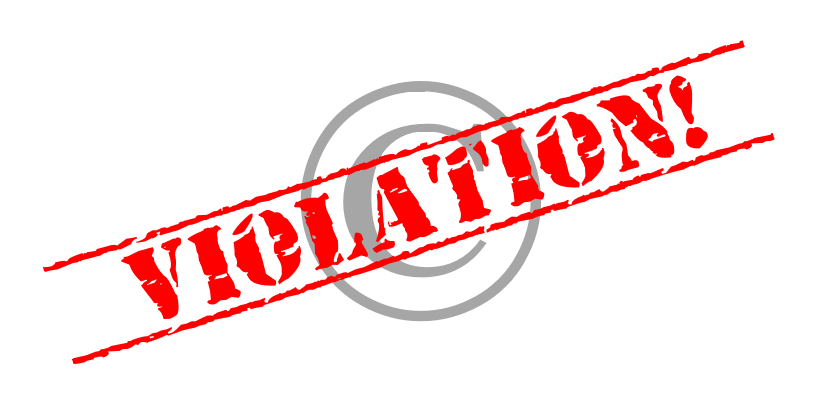Table of Contents
Here’s how to prevent inadvertently infringing on the rights of someone else’s creative work.

Copyright is one of many types of intellectual property (IP) protection that is intended to preserve the creator’s, owner’s, or holder’s exclusive right to claim an original work as their own—when the work is fixed in a physical medium.
Copyright protection is awarded to a work as soon as it is written on paper, recorded digitally, or typed electronically—or anything that may be heard, seen, read, or touched.
The United States Copyright Act of 1970 was established to safeguard creative works from unlawful use or violation of copyright. Nonetheless, despite federal law prohibiting individuals from copying, publishing, transmitting, exhibiting, distributing, modifying, displaying, or otherwise using (whether for profit or not) the original creative expressions of others, copyright infringement—intentional and unintentional—can and does occur.
woman-sculpting-pottery
What Exactly Is Copyright Infringement?
In most cases, copyright infringement occurs when someone uses another person’s original creative work or a copyrighted material without permission.
There are several sorts and manifestations of copyright infringement. If you carry out the following acts without first receiving permission from the owner, author, or holder of the copyrighted content, you will be committing copyright infringement:
Making a movie at a cinema theatre
Uploading a video to your company’s website that contains copyrighted words or music
Using photographs with copyright on your company’s website
Using the copyrighted songs of a musical group on your company’s website
Changing a photograph and putting it on your company’s website
Making items using copyrighted text or pictures for sale
Obtaining music or movies without paying for their usage
Without a permission or formal agreement, you may not copy any literary or creative work.
How to Avoid Copyright Infringement
While not an exhaustive list, the following recommendations can assist you in avoiding unwittingly pirating another person’s creative works:
Learn about the rights that copyright laws protect. Copyright legislation is often confused with trademarks, patents, and licences. Although all of these are kinds of intellectual property, copyrights are likely the most easily obtained and also the most easily violated—either purposefully or unwittingly. Learning about the United States Copyright Act of 1970 and the Berne Convention laws is an excellent place to start.
Don’t use it if it isn’t your original work. We’ve all heard the expression, “If it’s not yours, don’t touch it.” The golden rule in copyright laws is to get specific permission from the owner, author, or holder of the copyrighted content. You are not permitted to utilise the work unless you are the author of it. This is valid even if a work does not have a copyright sign.
In general, anything you discover on the internet is not fair game. In general, whatever you view or read on the internet is copyrighted by default, owing to the fact that the content (blogs, literary or creative works, etc.) was generated by someone else. You are infringing on copyrighted content if you duplicate, reproduce, exhibit, or otherwise present another’s work (such as an image, musical recording, article, or any other form of work that you did not create) as your own. This is true whether or whether you gained monetarily from the usage.
How Do I Report and Address Copyright Violations?
Although corporate and public sector organisations receive and handle copyright registrations, they seldom address claimed copyright infringement accusations. It is your responsibility, as the creator, owner, or holder of the copyrighted work, to assert your rights and put an end to the infringing conduct.
The simplest and most usual way to stop copyright infringement is to submit a so-called Copyright Infringement Notice directly to the guilty party.
This is a written notice that identifies the copyrighted subject matter, details the alleged infringement or unauthorised use, and threatens legal action if the infringing behaviour is not stopped promptly. The notification may also include a request for fines and penalties for previous unlawful use of the copyrighted material.
A Copyright Infringement Notice (or a Notice of Claimed Infringement) is similar to a “cease and desist” letter in that it orders the offender to immediately halt the infringement, undo any possible damage, and remove any usages of the copyrighted content from public view.
If the first way fails, you as the copyright owner have the option of filing a legal complaint against the infringing party. In the litigation, you must demonstrate that your copyright predates the infringing party’s use of the contents. You may normally file a court order ordering the infringing party to cease using the copyrighted content immediately and requesting monetary damages (that is, monetary compensation) for any genuine injury caused as a direct consequence of the infringement.
What Are the Consequences of Copyright Infringement?
Penalties for copyright infringement may be both civil and criminal in nature, and they might include:
Damages for copyright infringement and real earnings lost as a direct consequence of the infringement
In the event of deliberate or willful infringement, civil fines of up to $150,000 per instance of work may be imposed (such as counterfeiting)
Statutory fines ranging from $750 to $30,000 each infringing piece of work
Criminal sanctions include fines of up to $250,000 and up to five years in prison for each crime.
You may protect yourself against copyright infringement by having your creative works registered with the assistance of an attorney. An expert can also help you pursue copyright infringement fines or defend yourself in the event of an infringement lawsuit.
